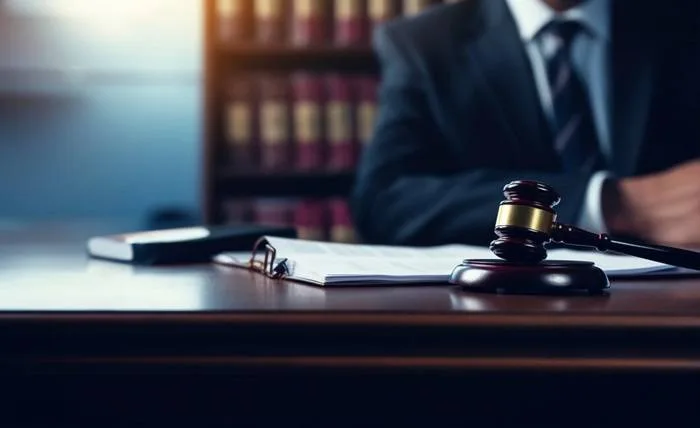Facing drug-related charges can be a daunting experience. It is crucial to have an experienced lawyer to guide you through the complexities of the legal system. This article will provide an overview of what to expect when dealing with a drug offence in Brampton and how a specialized lawyer can help.
Understanding Drug Offences
Drug offences encompass a wide range of activities related to illegal substances. These can include possession, trafficking, production, and importation. Each type of offence carries its own set of legal implications and potential penalties.
Types of Drug Offences
- Possession: Being found with an illegal substance, even in small amounts, can result in possession charges.
- Trafficking: Involves selling, giving, transporting, or distributing drugs.
- Production: Refers to the manufacturing or cultivation of illegal drugs.
- Importation: Bringing illegal drugs into the country.
Importance of a Drug Offence Lawyer
Having a lawyer who specializes in drug offences is essential for several reasons. They have the expertise to navigate the legal system, challenge evidence, and negotiate with prosecutors. Here are some key benefits of hiring a drug offence lawyer in Brampton:
- Expert Knowledge: Specialized lawyers are well-versed in drug laws and can provide the best defense strategies.
- Experience: They have experience dealing with similar cases and know the nuances of the legal process.
- Negotiation Skills: They can negotiate with prosecutors to reduce charges or penalties.
- Support and Guidance: They provide emotional and legal support throughout the process.
Steps in the Legal Process
Understanding the legal process can help reduce anxiety and prepare you for what to expect. Here are the typical steps involved in dealing with a drug offence charge:
1. Arrest and Charge
The process begins with an arrest, where the police take you into custody. They will inform you of the charges against you and your rights. It’s essential to remain calm and contact a lawyer immediately.
2. Bail Hearing
After the arrest, a bail hearing is conducted to determine whether you can be released from custody while awaiting trial. A lawyer can argue for your release by presenting evidence that you are not a flight risk and will comply with court orders.
3. Disclosure
The prosecution must provide all evidence they have against you, known as disclosure. This includes police reports, witness statements, and any other relevant information. Your lawyer will review this evidence to build your defense.
4. Preliminary Inquiry
In some cases, a preliminary inquiry is held to determine if there is enough evidence to proceed to trial. Your lawyer can challenge the evidence and argue for the charges to be dismissed if there is insufficient proof.
5. Plea Bargaining
Before the trial, your lawyer may engage in plea bargaining with the prosecution. This involves negotiating a deal where you plead guilty to a lesser charge in exchange for a reduced sentence. Your lawyer will advise you on whether this is a good option.
6. Trial
If the case goes to trial, your lawyer will present your defense, challenge the prosecution’s evidence, and cross-examine witnesses. They will aim to create reasonable doubt in the minds of the jurors or judge, which can lead to an acquittal.
7. Sentencing
If you are found guilty, the court will determine your sentence. Your lawyer can present mitigating factors to argue for a lighter sentence.
Building a Strong Defense
A strong defense is critical in drug offence cases. Your lawyer will explore various defense strategies based on the specifics of your case. Some common defenses include:
- Unlawful Search and Seizure: Arguing that the police violated your rights by conducting an illegal search.
- Lack of Knowledge: Claiming you were unaware of the presence of drugs.
- Entrapment: Asserting that you were coerced into committing the offence by law enforcement.
- Insufficient Evidence: Highlighting weaknesses or inconsistencies in the prosecution’s evidence.
What to Look for in a Drug Offence Lawyer
Choosing the right lawyer can significantly impact the outcome of your case. Here are some factors to consider when selecting a drug offence lawyer in Brampton:
- Experience and Expertise: Look for a lawyer with a proven track record in handling drug offence cases.
- Reputation: Research their reputation and read reviews from previous clients.
- Communication: Ensure they communicate clearly and keep you informed throughout the process.
- Accessibility: Choose a lawyer who is accessible and responsive to your needs.
- Fee Structure: Understand their fee structure and ensure it fits within your budget.
Conclusion
Facing a drug offence charge in Brampton can be overwhelming, but you don’t have to navigate it alone. A skilled drug offence lawyer can provide the expertise, support, and representation you need to achieve the best possible outcome. By understanding the legal process and building a strong defense, you can effectively fight the charges against you.



